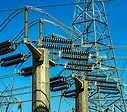The national power grid again collapsed on Tuesday, plunging Nigerians into darkness for some hours.
Reacting to the situation in a statement on his X (formerly Twitter) handle on Wednesday, Obi highlighted South Africa’s recent achievement of recording seven months of uninterrupted electricity supply.
The former governor of Anambra State stressed that the issue of power failure affects Nigerians, irrespective of regions or religious groups, dismissing any suggestions that certain groups benefit more than others in the energy sector.
He said, “Again, yesterday (Tuesday), the now regular news came that the National Grid had collapsed once again. Just a few days ago, on the 25th of October, South Africa that was the second-largest economy in Africa behind Nigeria until recently, with a quarter of our population, celebrated seven months of uninterrupted power supply.
“South Africa generates and distributes about 40,000 MW of electricity, while Nigeria struggles to generate and distribute just 10% of that.
“Is there any tribe in Nigeria that enjoys uninterrupted power supply like South Africa? I am labelled a tribal bigot. When I ask if any religion enjoys special privileges in this crisis, I am called a religious bigot. But I will continue to speak the truth about our situation today.
“The fact remains that we are all suffering equally from this failure,” he said.
Obi also advised Nigerians to move past primordial sentiments and focus on electing leaders who can drive the country towards development.
He underscored the need for transformative leadership to move Nigeria from a consumer-driven economy to a productive one by channelling resources into essential sectors like health, education, and infrastructure.
He said, “The fact remains that we are all suffering equally from this failure. The solution lies not in tribal or religious affiliations but in visionary leadership and a shared commitment to progress.
“We must set aside these primordial sentiments and elect leaders who are competent, capable, and have the vision to transform our nation from a consumer-driven economy to a productive one by investing our meagre resources in critical areas of development like health and education, lifting our people out of poverty, and ensuring increased electricity production and distribution.”





